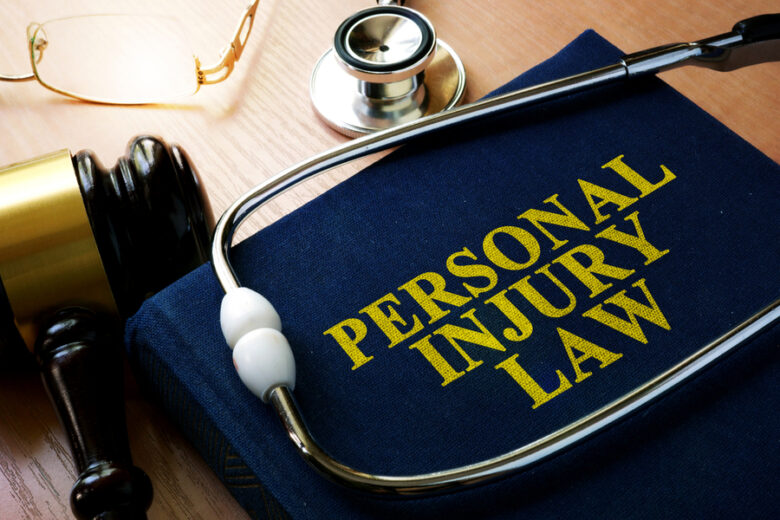A severe head injury necessitates medical attention right once. Medical experts are discovering more and more about concussions and traumatic brain injuries’ terrible long-term consequences (TBIs). Victims might suffer severe physical and psychological ramifications from these injuries, which can have life-altering implications in some cases. Without a direct hit to the head, brain damage can develop. Brain damage can be caused by severe whiplash, for example.
In the case of catastrophic brain injury resulting from a vehicle accident, slip and fall, or other incidents, you need legal counsel to protect your legal rights and interests. If you are considering bringing a claim, get expert legal advice from DDR Lawyers.

Source: warrenandsimpson.com
Contents
- Legal Liability in Florida for Traumatic Brain Injuries
- Negligence in cases of brain injury
- Symptoms of Traumatic Brain Injury
- Rules for Comparative Negligence in Miami, FL
- How Soon Should I File a Brain Injury Claim?
- Statute of Limitations for Medical Malpractice
- Why Contacting a Brain and Head Injury Attorney is Vital?
Legal Liability in Florida for Traumatic Brain Injuries
If you wish to recover your medical bills and other expenses, you will need to prove another party was responsible.
In a personal injury case, the negligence standard is used to determine fault under Florida statutes, Chapter 768.81. Basically, you need to demonstrate that the defendant’s negligence caused your injury before you can sue them or their insurance company for compensation.
Negligence in cases of brain injury
Negligence refers to taking failure to exercise reasonable care. Even while carelessness is a pretty simple notion, in theory, it can be quite challenging to apply in practice. What constitutes irresponsible conduct will vary greatly depending on the individual facts of a traumatic brain injury case.
The first question in these cases is whether or not the victim received the due care. Different defendants owe different responsibilities. Motorists and homeowners in Florida are expected to provide the highest level of care. In other situations, the level of care may be less thorough.
As a prerequisite to establishing negligence, the victim must show that the defendant did something unsafe and that the victim was injured.

Source: casperfirm.com
Symptoms of Traumatic Brain Injury
Traumatic brain damage is accompanied by a wide range of symptoms, from modest vision impairments and recurrent headaches to considerably more severe conditions. These signs include, among others:
- Issues with coordination and balance;
- Seizures;
- Sensory perception changes;
- Swallowing issues;
- Speaking challenges;
- Insomnia;
- Having trouble identifying familiar objects;
- Communication challenges;
- Confusion;
- Difficulty with rational or logical thought;
- Focusing challenges;
- Short-term and long-term memory impairment;
- Change in one’s perception of taste or smell, or loss of taste or smell;
- Persistent dizziness;
- Having trouble organizing, multitasking, or addressing difficulties;
- Comprehension issues when reading or listening;
- Having trouble following or engaging in conversations;
- Social issues include difficulties comprehending nonverbal cues, taking turns, expressing emotions, changing behavior, having trouble controlling oneself, engaging in risky actions, or having verbal or physical outbursts.
- Emotional alterations, including irritation, lack of empathy, rage, melancholy, anxiety, and mood swings
Rules for Comparative Negligence in Miami, FL
Florida is a comparative fault jurisdiction, like nearly all other states in the United States. Therefore, several parties might be held liable for the same injury claim. Whenever there is split responsibility, each party will be judged to the extent of their involvement in the accident. Suppose you are injured in a three-car accident in which both other drivers are equally at fault for your injuries. In that case, you would be charged half the damages.
In some situations, victims of brain damage may be partially responsible for their injuries, resulting in a reduction in their pay.

Source: thefloridalawgroup.com
How Soon Should I File a Brain Injury Claim?
A brain injury can profoundly alter the course of one’s life. As a result, they must be compensated by the individual who caused their injury in order to cover the costs of this care.
But when ought a victim of brain damage to initiate a lawsuit? As soon as you can, is the reply. The maximum length of time you have to file a lawsuit in Florida is outlined by the statute of limitations.
There is usually a four-year limit
Your “cause of action,” or the legal theory you sue on, will determine how much time you have to file your lawsuit. Most brain injury victims file lawsuits under the category of negligence, which includes the following:
- Car crashes
- Truck collisions
- Pedestrian collisions
- Falls and slips
Although four years may seem long, you must also consider the time it takes to negotiate with the defendant and any time required to investigate the accident. Time might fly by very quickly during this period.

Source: bencrump.com
Statute of Limitations for Medical Malpractice
Because of the doctor’s poor care, you may have had a brain injury. There is a statute of limitations for claims of medical misconduct. Particularly for victims, the statute of limitations for filing a lawsuit is just two years from the date of the faulty treatment. If they did not identify the negligent treatment immediately, they have two years from the discovery date.
There is a statute of limitations in cases of medical malpractice. No matter when you become aware of the injury, this statute precludes your capacity to file a lawsuit. A medical malpractice case usually has a statute of limitations of four years. Young children and circumstances where fraud or misrepresentation prevented a person from learning about the malpractice are exceptions.
Why Contacting a Brain and Head Injury Attorney is Vital?
The price tag for treating a survivor of a severe traumatic brain injury can run anywhere between $600,000 and $1,875,000 over the duration of the victim’s life, depending on the severity of the damage and its particular long-term repercussions. There may be enormous medical debt for many victims and their families. The expenses will only become out of control if the person’s traumatic brain injury prevents them from working again.
Suppose you sustain a brain injury resulting from an accident. In that case, you must hire a lawyer who will fight to the bitter end to ensure that you receive compensation for all the medical bills, lost wages, and other damages you have suffered.

Source: latimes.com
You’re not on your own, and the appropriate accident lawyer can put someone on your side who is familiar with the laws that apply to your case.
